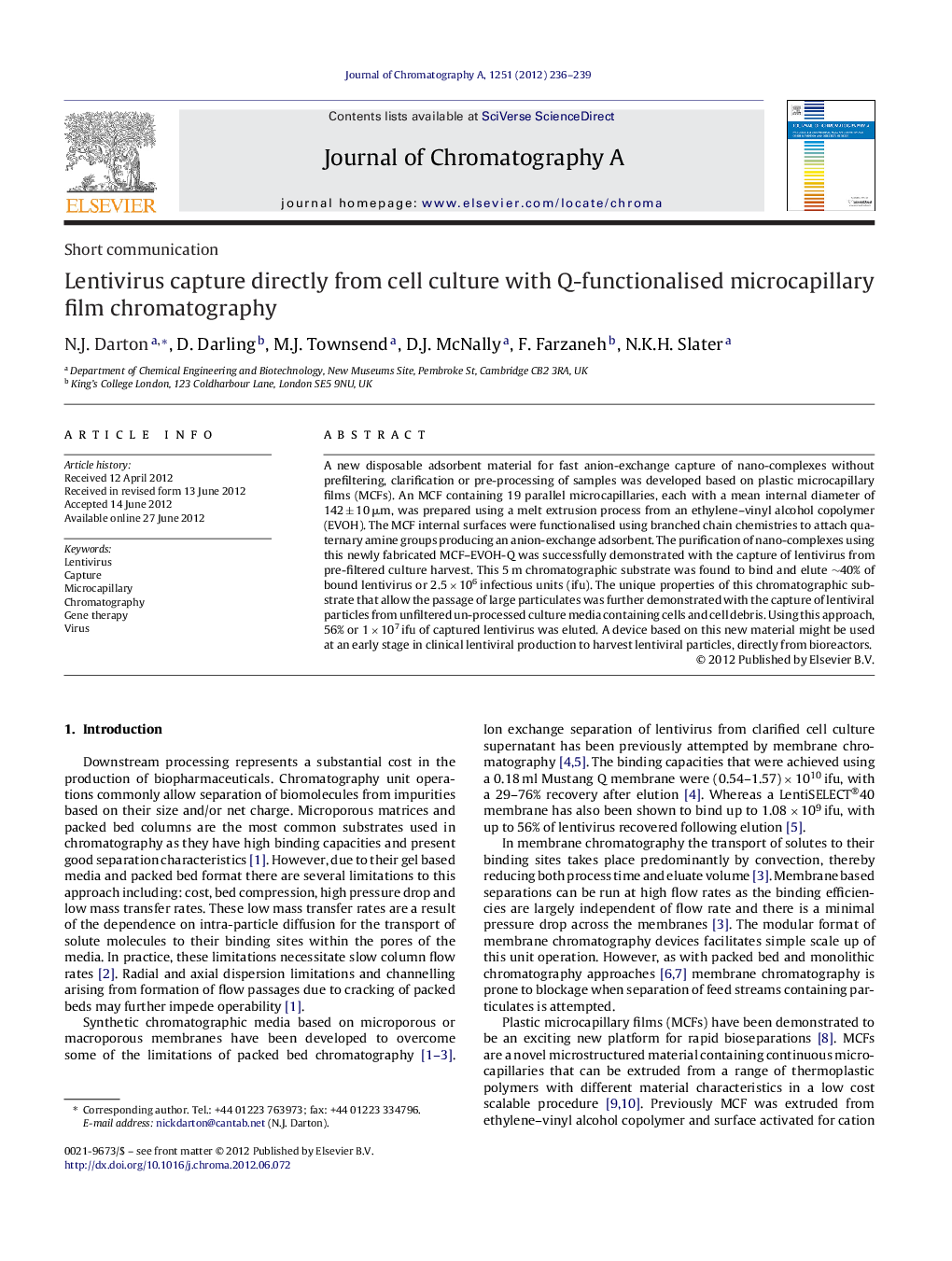| Article ID | Journal | Published Year | Pages | File Type |
|---|---|---|---|---|
| 1202406 | Journal of Chromatography A | 2012 | 4 Pages |
A new disposable adsorbent material for fast anion-exchange capture of nano-complexes without prefiltering, clarification or pre-processing of samples was developed based on plastic microcapillary films (MCFs). An MCF containing 19 parallel microcapillaries, each with a mean internal diameter of 142 ± 10 μm, was prepared using a melt extrusion process from an ethylene–vinyl alcohol copolymer (EVOH). The MCF internal surfaces were functionalised using branched chain chemistries to attach quaternary amine groups producing an anion-exchange adsorbent. The purification of nano-complexes using this newly fabricated MCF–EVOH-Q was successfully demonstrated with the capture of lentivirus from pre-filtered culture harvest. This 5 m chromatographic substrate was found to bind and elute ∼40% of bound lentivirus or 2.5 × 106 infectious units (ifu). The unique properties of this chromatographic substrate that allow the passage of large particulates was further demonstrated with the capture of lentiviral particles from unfiltered un-processed culture media containing cells and cell debris. Using this approach, 56% or 1 × 107 ifu of captured lentivirus was eluted. A device based on this new material might be used at an early stage in clinical lentiviral production to harvest lentiviral particles, directly from bioreactors.
► New disposable adsorbent material developed for fast anion-exchange capture of nano-complexes. ► No sample prefiltering, clarification or pre-processing required. ► Consists of melt extruded plastic films containing 19 parallel microcapillaries. ► Capture of 1 × 107 infectious units of lentivirus (∼clinical trial does) from un-processed sample. ► Might be used to harvest lentiviral particles directly from bioreactors in clinical production.
